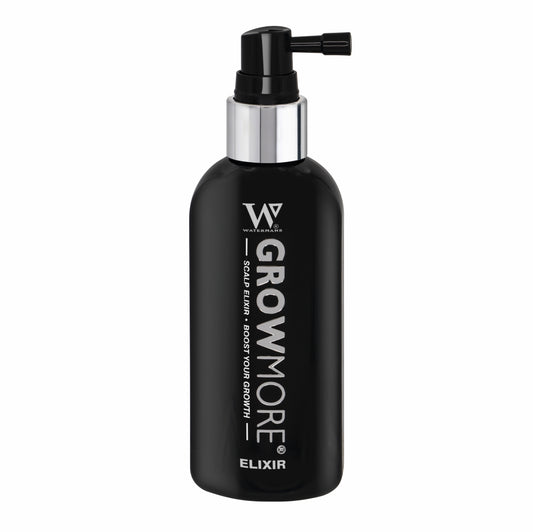Unraveling Chronic Fatigue Syndrome: Understanding Symptoms, Causes, and Pathways to Recovery
Share

Chronic Fatigue Syndrome: Understanding Symptoms, Causes, and Pathways to Recovery
Chronic Fatigue Syndrome (CFS), also known as Myalgic Encephalomyelitis (ME), is a complex and often misunderstood health condition that affects millions of people worldwide. Characterized by severe, long-lasting fatigue that isn’t relieved by rest, CFS can significantly impact daily life. Today, we will explore what CFS is, its symptoms, potential causes, and importantly, pathways to recovery, including natural approaches that may support overall well-being.
What Is Chronic Fatigue Syndrome?
Chronic Fatigue Syndrome (CFS) is a debilitating illness defined by extreme fatigue that persists for six months or longer and worsens with physical or mental activity. Unlike typical tiredness, the fatigue experienced by CFS patients is profound and not improved by sleep or rest.
People with CFS also face a variety of other symptoms, which can vary in intensity and type from one person to another, making diagnosis challenging. This condition is sometimes called Myalgic Encephalomyelitis (ME), which highlights muscle pain and neurological symptoms associated with the disease.
Common Symptoms of Chronic Fatigue Syndrome
1. Extreme Fatigue
This fatigue is more than just feeling tired—it’s an overwhelming sense of exhaustion that doesn’t go away even after plenty of rest. It often worsens after even minor physical or mental exertion.
2. Post-Exertional Malaise (PEM)
A hallmark of CFS is post-exertional malaise, where symptoms worsen significantly following physical or cognitive activities that a person could previously handle.
3. Sleep Problems
People with CFS often experience unrefreshing sleep, insomnia, or disrupted sleep patterns that leave them feeling unrested.
4. Cognitive Difficulties (“Brain Fog”)
Memory problems, difficulty concentrating, and slowed thinking can make work and daily tasks very difficult.
5. Muscle and Joint Pain
Some patients suffer from unexplained muscle aches, joint pain without swelling, or headaches.
6. Sore Throat or Swollen Lymph Nodes
Recurring sore throat and tender lymph nodes without infection may be present.
7. Dizziness or Lightheadedness
Many experience orthostatic intolerance, meaning they feel dizzy or faint when standing up.
Causes of Chronic Fatigue Syndrome - What Does Science Say?
The exact cause of CFS remains unknown, but researchers believe it results from a combination of factors. These might include:
1. Viral Infections
Certain viruses such as Epstein-Barr virus, human herpesvirus 6, or enteroviruses might trigger CFS in some people.
2. Immune System Problems
Some studies suggest that CFS patients have an altered immune response that could contribute to persistent fatigue.
3. Hormonal Imbalances
Abnormalities in the hypothalamic-pituitary-adrenal (HPA) axis, which controls stress response, have been observed in CFS.
4. Genetic Factors
Family history may play a role in susceptibility, but more research is needed.
5. Physical or Emotional Trauma
Some cases develop after significant physical injury, surgery, or emotional stress.
Given this complexity, treatment plans are generally personalized and focus on symptom relief and improving quality of life.
How Does Chronic Fatigue Syndrome Affect Hair and Scalp Health?
While CFS itself is not directly a cause of hair loss, many people with chronic fatigue experience hair thinning and hair fall. This can be due to several related factors:
- Stress and Anxiety: Chronic illness often brings emotional stress, which can lead to hair shedding through a condition called telogen effluvium.
- Nutritional Deficits: People with CFS sometimes have difficulty eating well, which can result in deficiencies affecting hair growth.
- Medication Side Effects: Certain medicines prescribed for symptom management may contribute to hair loss.
- Hormonal Changes: Imbalances related to CFS can impact hair follicle health.
If you are experiencing hair loss along with fatigue, addressing scalp and hair health is important for improving self-esteem and overall well-being.
To support hair regrowth naturally, trying gentle, scalp-friendly products can make a difference. For example, Watermans Grow Me Shampoo is packed with natural ingredients like Biotin, Rosemary, Caffeine, Niacinamide, Argan Oil, Allantoin, and Lupin Protein, known for energizing the scalp and volumizing hair from the roots. This shampoo is widely recommended for those seeking to maintain healthy hair without harsh chemicals.
Managing Symptoms: Therapies and Lifestyle Strategies for CFS
There is currently no cure for CFS, but many people find relief through a combination of lifestyle changes and supportive therapies. Here are some science-backed approaches:
1. Pacing and Energy Management
Learning to balance activity with rest (called pacing) helps avoid overexertion and minimizes post-exertional malaise.
2. Sleep Hygiene
Improving sleep habits can reduce fatigue. This includes keeping a regular sleep schedule, minimizing screen time before bed, and creating a restful environment.
3. Nutrition
Eating a balanced diet rich in vitamins, minerals, and antioxidants supports overall health and energy. Hydration is equally important.
4. Gentle Physical Activity
Light stretching or short walks as tolerated can help maintain muscle function without triggering symptom flare-ups.
5. Cognitive Behavioral Therapy (CBT)
Some find CBT helpful in managing the emotional impact of chronic illness and improving coping skills.
6. Medications
Doctors may prescribe medications to relieve specific symptoms such as pain, sleep problems, or depression.
Natural Remedies for Hair Loss and Fatigue Support
People with CFS who notice hair thinning might want to support hair health holistically. Here are some natural strategies:
Biotin Supplements
Biotin (Vitamin B7) is essential for healthy hair growth. Deficiency can lead to hair loss, so biotin-rich diets or supplements may be helpful.
Herbal Oils
Natural oils like rosemary oil—known for stimulating blood circulation to the scalp—can strengthen hair roots.
Scalp Care
Using gentle shampoos that cleanse without harsh chemicals keeps the scalp healthy and nourished.
Nutrient-Rich Diet
Foods high in iron, zinc, omega-3 fatty acids, and vitamins A, C, and E promote hair shaft strength and reduce breakage.
Again, a high-quality scalp-energizing shampoo such as Watermans Grow Me Shampoo combines many of these beneficial nutrients and ingredients, offering a natural way to bolster hair growth and scalp vitality.
The Role of Stress Management in CFS and Hair Health
Because chronic stress can aggravate both fatigue and hair loss, managing stress is vital. Techniques include:
- Mindfulness Meditation: Reduces anxiety and improves emotional balance.
- Yoga and Tai Chi: Promote relaxation and gentle exercise.
- Deep Breathing Exercises: Help calm the nervous system.
- Adequate Social Support: Connecting with friends and support groups lessens feelings of isolation.
Taking care of mental well-being often helps physical symptoms improve too.
Exploring Emerging Research and Future Directions
Scientists continue to explore the complex biology of Chronic Fatigue Syndrome with the hope of better treatments. Current areas of focus include:
- Immune system modulation to correct abnormalities.
- Identifying biomarkers for earlier and more precise diagnosis.
- Investigating the role of gut health and microbiome in symptom development.
- Testing novel pharmaceuticals targeting neurological or hormonal pathways.
While much remains to be discovered, ongoing research offers optimism for improved therapies.
Frequently Asked Questions About Chronic Fatigue Syndrome
Q1: How is Chronic Fatigue Syndrome diagnosed?
A1: Diagnosis is based on medical history, symptom assessment, and ruling out other conditions. There’s currently no specific lab test for CFS, making it a diagnosis of exclusion.
Q2: Can chronic fatigue syndrome be cured?
A2: There is no known cure yet, but many people manage their symptoms well with lifestyle adjustments and supportive therapies.
Q3: Does chronic fatigue syndrome cause hair loss directly?
A3: CFS doesn’t directly cause hair loss, but related stress, nutritional deficiencies, or medications can lead to hair thinning.
Q4: What vitamins help with fatigue and hair loss?
A4: Vitamins B complex (especially biotin), vitamin D, iron, and zinc are important for energy production and hair health.
Q5: Are there any natural shampoos good for hair loss in chronic fatigue patients?
A5: Yes, Watermans Grow Me Shampoo is a natural, non-medical shampoo with ingredients like biotin and rosemary that energize the scalp and encourage hair growth.
Q6: How do I prevent post-exertional malaise?
A6: Pacing activities and avoiding overexertion is key. Listen to your body and rest when needed.
Q7: What kinds of exercise are safe with CFS?
A7: Gentle, low-impact activities like stretching or gentle yoga are recommended. Avoid intense or prolonged workouts.
Q8: Can stress worsen CFS symptoms?
A8: Yes, stress can significantly worsen fatigue and other symptoms, so managing stress is essential.
Q9: How long does Chronic Fatigue Syndrome last?
A9: Duration varies widely. Some recover within months, while others have symptoms persisting for years.
Q10: Can changing diet help with CFS symptoms?
A10: A healthy, balanced diet supports overall well-being and energy levels. Avoiding processed foods and staying hydrated also helps.
Did You Know? Facts about Chronic Fatigue Syndrome
- Did you know that CFS affects women more than men, with about 75% of cases occurring in women?
- Did you know that post-exertional malaise can last more than 24 hours, making rest strategies vital?
- Did you know that mild viral infections sometimes precede the onset of CFS?
- Did you know stress reduction techniques can help improve both CFS symptoms and hair health?
- Did you know that scalp care with natural ingredients like rosemary and biotin supports hair growth, especially when combined with gentle, energizing shampoos like Watermans Grow Me Shampoo?
Living with Chronic Fatigue Syndrome is challenging, but understanding the condition and adopting supportive lifestyle measures can make a meaningful difference. Incorporating natural scalp and hair care with products such as Watermans Grow Me Shampoo can provide a gentle, nourishing boost to hair health as you focus on your overall recovery journey.



